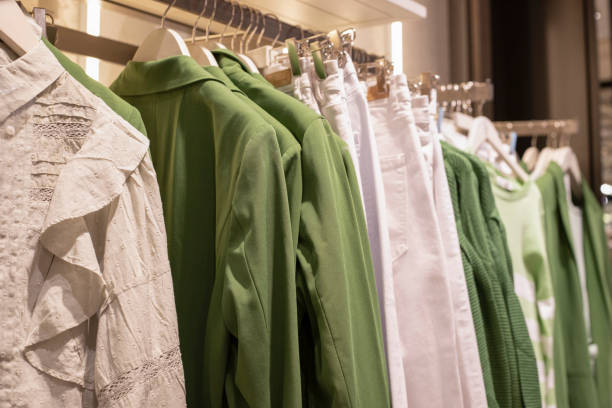Top Ethical Fashion Brands to Watch: A Guide to Sustainable and Fair Trade Fashion
As consumers become increasingly aware of the environmental and social impact of their purchasing decisions, ethical fashion brands are stepping into the spotlight. These brands prioritize sustainability, fair labor practices, and eco-friendly materials, making them a popular choice for conscious consumers. In this article, we will explore some of the most noteworthy ethical fashion brands that are making a difference in the industry.
Why Ethical Fashion Matters

Ethical fashion is not just a trend but a necessity in a world grappling with climate change and social inequalities. Fast fashion has long been criticized for its negative impact on both the environment and workers in the supply chain. Ethical fashion brands aim to counteract these issues by implementing sustainable practices and ensuring fair labor conditions. By choosing ethical fashion, consumers can contribute to a more sustainable and equitable world.
Top Ethical Fashion Brands to Watch
1. Patagonia
Patagonia has been a pioneer of sustainable practices in the fashion industry for decades. Known for its high-quality outdoor clothing, Patagonia uses eco-friendly materials such as recycled polyester and organic cotton. The company also ensures fair labor practices by conducting regular audits of its supply chain and offering fair wages to workers. Patagonia is also committed to giving back, donating a portion of its profits to environmental causes.
2. Everlane
Everlane is a brand that prides itself on “”radical transparency.”” Customers are provided with detailed information about the cost of materials, labor, and transport for each product. Everlane uses sustainable practices and sources materials responsibly, ensuring that workers are treated fairly and paid well. Their commitment to transparency and ethical manufacturing has earned them a loyal customer base.
Sustainable Materials and Practices
Many ethical fashion brands are adopting innovative materials and practices to minimize their environmental footprint. Some common sustainable materials include organic cotton, recycled polyester, Tencel, and hemp. These materials require less water, energy, and chemicals to produce, making them more environmentally friendly than conventional materials. Furthermore, ethical brands often employ practices such as zero-waste manufacturing, minimizing chemical use, and utilizing renewable energy sources.
Fair Trade and Worker Welfare
Ensuring fair labor practices is a cornerstone of ethical fashion. Many ethical brands are certified by organizations such as Fair Trade, which guarantees that workers receive fair wages, safe working conditions, and community support. These brands often partner directly with artisans and cooperatives in developing countries to ensure that their products are ethically made. By supporting fair trade, consumers can help break the cycle of poverty and exploitation in the fashion industry.
How Consumers Can Support Ethical Fashion
Supporting ethical fashion goes beyond just buying from ethical brands. Consumers can make a difference by:
- Researching brands before making a purchase
- Buying fewer, higher-quality items that last longer
- Supporting second-hand and vintage shops
- Organizing or participating in clothing swaps
- Advocating for more transparency and ethical practices in the fashion industry
By making more conscious choices, consumers can drive demand for ethical fashion and encourage more brands to adopt sustainable practices.
Conclusion
The rise of ethical fashion brands signifies a positive shift towards more sustainable and equitable practices in the fashion industry. Brands like Patagonia and Everlane are leading the way by prioritizing eco-friendly materials, fair labor practices, and transparency. By supporting these brands and adopting more thoughtful consumption habits, consumers can play a crucial role in fostering a more ethical and sustainable future for fashion.
FAQs
What is ethical fashion?
Ethical fashion refers to clothing and accessories made in ways that consider the environment, social impact, and fair labor practices. It aims to reduce harm to people and the planet.
How can I identify an ethical fashion brand?
Look for brands that are transparent about their sourcing and manufacturing processes. Certifications like Fair Trade, GOTS, and B Corp can also indicate that a brand adheres to ethical standards.
Is ethical fashion more expensive?
Ethical fashion can be more expensive due to the higher costs of sustainable materials and fair wages. However, these items are often higher quality and longer-lasting, providing better value over time.
Can I still follow fashion trends with ethical fashion?
Yes, many ethical fashion brands offer stylish and trendy options. Moreover, focusing on timeless and versatile pieces can help you create a chic, sustainable wardrobe.
What are some easy ways to transition to an ethical wardrobe?
Start by researching ethical brands, buying fewer but higher-quality items, and considering second-hand and vintage clothing. Additionally, engage in clothing swaps and advocate for ethical practices in the fashion industry.

